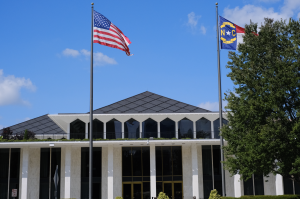Social media presents obstacle to quality time
Daily restrictions on social media usage can lead to healthy lifestyle changes
March 4, 2021
Recently, I had to watch The Social Dilemma on Netflix for a class. I had heard of this docudrama before watching it and knew from others’ reactions that it had the specific effect of making people want to delete their social media accounts. I was not surprised that it had this effect on people.
Throughout the documentary, various former executives, employees and creators of the behemoth technology industries like Google or Facebook shared information about the dangers of the technology they helped to create. While I could not bring myself to completely abandon my social media presence, I did go to the screen report on my phone to set time limits for various apps to help monitor and diminish my usage.
In the documentary, we are the label that is used to describe the consumers of the technology market was brought up: users. It is only in technology and illicit drugs in which people are referred to as users. This especially stood out to me because of the phrase that captures technology’s addicting and manipulative effects. We, as a society, are users of technology, a drug that can be as harmful as any other illegal substance.
The docudrama also shared how the technology industry profits from human futures and makes its money based on how efficiently and effectively it can trap you on the platform for x-number of hours per day. I have never truly thought about the idea that we as users are the ones being sold to these various advertisers. It is because of them that our social media is free.
Although humans are individuals and free beings — or at least we tend to think we are — it is clear that our societal liberties have been recreated around the use of technology. If I went without my phone for a week, I would have no other method of connecting with friends or finding out what they were up to. I would get lost trying to go off campus without the Maps app. I wouldn’t even be able to talk to my parents. There are so many more examples, but these show how intricately these devices are woven into our daily lives. Many of us are truly incapable of completing most daily activities without them.
Ever since the pandemic has started, I think our society has become more reliant on technology for avenues to connect with others. I know that my screen time increased immensely, and as a result, my mental health has declined. I think social media allows us to connect, which is a good thing but makes us feel guilty or lonely, for each second of the day when we are not connecting.
This in turn has fueled anxiety, depression, loneliness and other problems that college students encounter daily. This specific effect of social media should be very concerning. After all, don’t we want to control our social media and how it affects us, as opposed to the other way around?
As college students, we already have a million other responsibilities that fight for our attention and time throughout the day. We have to think about classes, friends, family, our health, COVID-19 regulations and our futures. Overuse of social media simply provides an additional competitor for our time, and frankly, one we could do without. I cannot help but wonder, what would happen if we used the time we spent endlessly scrolling through social media to improve on other areas of our lives? Would we do better in our classes? Would we enjoy the little moments with our friends? Would we read a book, go outside or learn a new skill that would enrich our personal lives? Perhaps not, but, I am sure we can all think of other activities that are more useful, more productive and more worthwhile to spend our energy on.
After setting restrictions for my time on social media, I felt relieved. I felt like I was taking one step in the right direction, away from the addictive nature of technology, and making a choice to better myself. I have begun leaving my phone in the room when going to say hello to suitemates or putting it in my backpack as I walk to class. In these decisions, I have realized that controlling social media’s addictive nature does not have to be painful or extreme. Rather, it can take the form of simple everyday choices that help to regain control.












